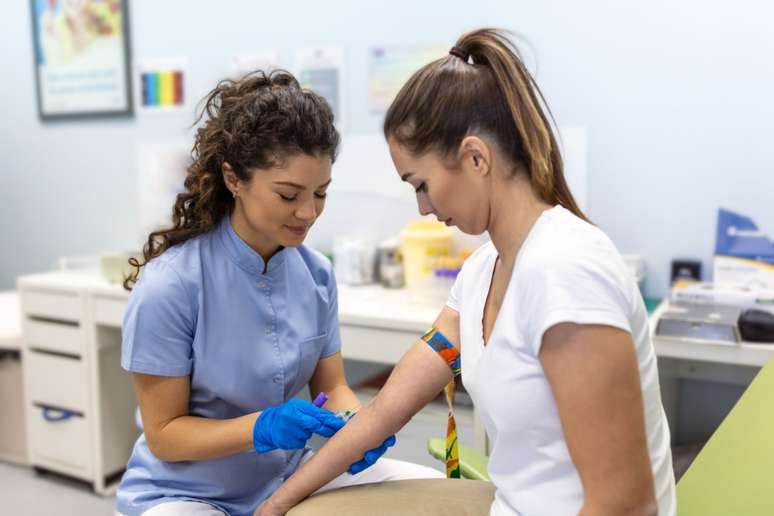The doctor explains the blood test that is usually requested by healthcare professionals
A complete blood count is a laboratory blood test that provides detailed data on blood components, such as red and white blood cells and platelets. It is generally part of the routine tests requested by doctors, and is essential for monitoring diseases such as anemia, infections and inflammation.
Therefore, below, Dr. Guilherme Pazzolo, a cardiologist who is part of the medical team of Hilab, a Brazilian biotech specialized in clinical analysis tests, clarifies some common doubts about the blood count. Check it out below!
1. What is the blood count used for?
A complete blood count is a routine blood test that evaluates the quantity and quality of blood cells: red blood cells, leukocytes and platelets. Elements responsible respectively for oxygen transport, defense and coagulation. This exam provides important information on the patient’s health and can help detect various medical conditions.
Typically this evaluation is requested in case of fatigue, prostration, palpitations, shortness of breath, persistent fever, chills and, above all, in case of hemorrhage. Because of this wide range of uses, the test appears in more than half of medical claims worldwide.
2. How is the blood count performed?
It is currently possible to perform a complete blood count in laboratories, private clinics, hospitals and even in pharmacies, with the advent of the current RDC 786/2023 – an Anvisa provision which expands the accredited spaces for carrying out clinical analysis tests.
Today the test can be carried out by sampling venous, arterial and even capillary blood, carried out through a small hole made on the fingertips, thus ensuring greater comfort during sample extraction. There is no contraindication to performing a complete blood count, regardless of collection method, patient age, or diagnostic utility.

3. Is the blood count in the pharmacy the same as the traditional laboratory?
The tests carried out in pharmacies have some differences compared to those carried out in laboratories, such as speed counting and availability of the results, but their quality is the same as that of tests carried out in the laboratory, being accepted by doctors for the purpose of diagnostic aid. The complete blood count, which can currently be performed in some pharmacies that have this testing option, is performed on a POCT device (Point-of-care testing).
4. What is the difference between the examination by capillary puncture or venipuncture?
The capillary sampling exam is much more convenient, especially for some categories, including: elderly people, children and people with some form of vascular fragility or in treatments oncological. But the collection methodology does not interfere with the results.
5. How much does a blood count cost?
In popular clinics, prices vary between R$10 and R$25. In pharmacies, prices vary depending on the location of the establishment, but in hospitals and laboratories prices can vary from R$35 to R$50 have a greater price variation, reaching R$150.
6. What diseases can be diagnosed by a blood count?
Anemia, polycythemia, leukemia, illness autoimmune diseases, neoplastic diseases, vitamin deficiency, trace element deficiency, infections, bone marrow diseases, endocrine (hormonal) diseases and allergic diseases.
By Wendy de Oliveira
Source: Terra
Ben Stock is a lifestyle journalist and author at Gossipify. He writes about topics such as health, wellness, travel, food and home decor. He provides practical advice and inspiration to improve well-being, keeps readers up to date with latest lifestyle news and trends, known for his engaging writing style, in-depth analysis and unique perspectives.





![Tomorrow we belong to: What awaits you in the episode of 1946, 1946, May 19, 2025 [SPOILERS] Tomorrow we belong to: What awaits you in the episode of 1946, 1946, May 19, 2025 [SPOILERS]](https://fr.web.img3.acsta.net/img/57/e3/57e3079eff5f0a4878871c2512d436ee.jpg)

